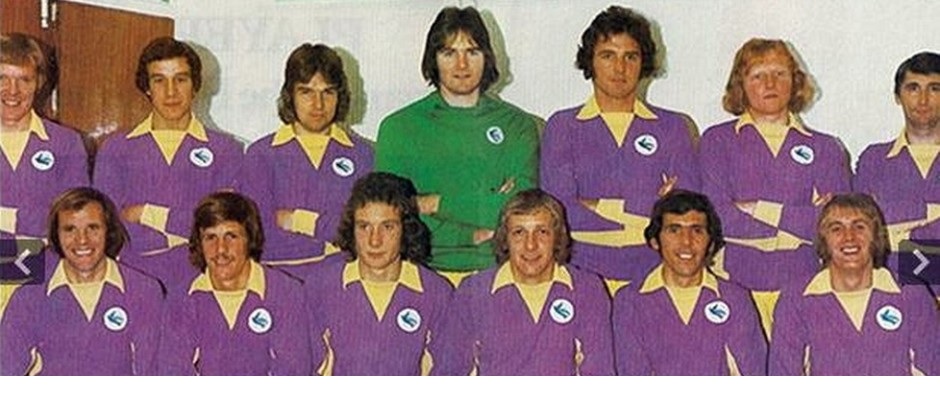
Entertaining a side that had lost fifteen out of their last sixteen away games and had one win in fourteen overall, Cardiff City folded as you suspected they may well do and could have no complaints about their 2-1 home loss to Luton tonight. This means that in little over a week, the handy six point cushion we’d built up over the bottom three has all but been eaten away.
Yes, there are twenty seven points left to play for and it only needs a couple of wins for things to look completely different, but it’s now just eight victories in thirty seven and we’re getting towards a stage now where we probably need to win one in three of our remaining matches with a team that is only winning one in every four or five.
Worse than that, in our past twenty four games (more than half a season) we’ve won just four times. Add in the fact that we have a defence which at times seems almost eager to prove that it is the worst backline we’ve had in a generation and the oft repeated line that there are three teams in the Championship that are worse than us is ringing hollow tonight.
So, we don’t win anywhere near enough games and we can’t defend, but, even allowing for that, the biggest problem this squad has is a lack of character. Mentally, too many of them cope poorly with the pressure of a relegation struggle. During a truly horrible first half showing, there were two or three (eg Ramsey, Alves and Fish) who looked like the pressure of what was billed as the six pointer to end all six pointers and a season defining game was not getting to them, but far too many played as if they were scared stiff and the tension of the occasion was not just affecting them mentally, but physically as well.
Things improved a bit in the second half, Callum O’Dowda, taking over the captaincy after Ramsey suffered an injury which his reaction suggested could be season, or maybe even career, ending, took on more responsibility, Sivert Mannsverk, Ramsey’s replacement injected some urgency and purpose and others improved on their truly dismal showings of the first period.
However, none of this altered the evidence of your own eyes that Luton, who, let’s face it, were under a lot more pressure than us, were still the better, more controlled team. That’s not to say they were that good, but they were able to recover from what should have been the killer blow of conceding first.
We scored a scruffy mishit goal which was only allowed after the referee had consulted the linesman involved about a possible offside, but, whereas we were able to hang on for a very rare clean sheet after scoring around the same time against Hull in our last season defining game, there was little sign of the defensive solidity we showed that night against a better team than Luton.
I’ll not waste any time on a first half which saw us having to defend for long stretches. Luton weren’t looking particularly dangerous, but at least there were one or two moments to get their fans excited such as when Liam Walsh’s fierce shot was kept out by a sprawling Ethan Horvarth, but there was nothing happening up the other end and I’d love to have seen the half time figure for Cardiff touches of the ball in the Luton penalty area- it can’t have been more than two or three.
Months ago City players lined up to say that they wanted Omer Riza to be our manager, Im not sure if that’s still the case, but there was a positive reaction to him reading them the riot act at half time (he had to have done that surely?). Fish drove forward to gain a free kick in a threatening position that Luton were unable to clear and the ball dropped to Calum Chambers stood just inside the penalty area whose volley bounced up off the ground and into the net with goalkeeper Thomas Kaminski complaining that Fish was offside.
For the next seven minutes, City looked pretty uncomfortable in their efforts to hold on to their lead and Luton must have been hopeful that there was a way back into the match for them, but they can’t have thought it would arrive so spectacularly.
At first, it appeared that Dimi Goutas had cleared any danger when he got good contact on his clearing header from a cross, but Jordan Clark took a touch and then sent a great left foot volley high into the net from twenty yards out.
It was a great strike, but there was no attempt to block Clark’s shot from a City player, while Horvarth’s statuesque response to it didn’t look good either – although, to be fair to him, the goalkeeper probably figured, rightly, that he had no chance of saving it.
A draw wouldn’t have been a disaster for City, but it would have done Luton no good and so they had to chase the win which in turn was bound to improve our chances of getting the vital third goal.
Mannsverth probably had our best chance when he should have got his shot from around where Chambers had scored from on target at least, but, instead it flew a few yards wide.
It was strange that a game of very little quality should produce two great examples of how to hit a volleyed shot from distance as Chambers’ second strike off the night from around twenty five yards was, if anything, better struck than Clark’s, but bounced over after whacking against the crossbar.
Seconds later, the goal which may just prove to have changed Luton’s season arrived as sub Josh Bowler tried a shot with his first touch which flew towards goal, but did not appear to be beating Horvarth, only for Goutas to fling himself at the ball and divert it straight into the path of Theelo Aasgaard who was left with a simple finish. It was unlucky on Goutas in a way, but there was a desperation about his attempted block which seemed to me to be an over reaction, it all looked a bit panicky to be honest.
Rather like against Sunderland, we had little to offer after going 2-1 down, although Riza’s failure to use Cian Ashford off the bench baffled me, as, indeed, did his team selection. Ive generally been supportive of Riza and still see little worth in sacking him now, but recent selections have been hard to figure out, there has been something of the scattergun to them and they give me the impression that he’s unsure in tactical and playing choices.
This result puts Omer Riza under pressure like no other one has apart, perhaps, from the Boxing Day loss at Oxford. Who knows how Vincent Tan will react and there are calls tonight for an SOS to be sent to Neil Warnock, but I reckon this lot would have him tearing his hair out within a day or two because so many of the qualities Warnock really appreciates are in such short supply in this squad.
Riza’s post match comments spoke of the need for his players to really scrap from now on, but, he’s been watching this squad for seven months now and he must surely have doubts as to whether they have it in them to do that. Tonight in a game that was always going to be a scrap, we saw effort, but to quote the last but one manager to take us to relegation, there was a lack of “cojones” and I would suggest that it wasn’t just me out of Cardiff City watchers this season who were half expecting this.
Sadly, the manager is beginning to look like someone who has run out of ideas as to how to get this squad winning games, every match seems to bring three or four changes and, while some of them are down to rotation as the fixtures come thick and fast, it’s getting harder to see what he is trying to do with this squad.
As of tonight, it’s difficult to see any other outcome for this season than relegation and, if it comes, it’s a tough task to put up any effective arguments as to why it wouldn’t be deserved. I mentioned earlier that you hear people say this squad should be nowhere near the bottom three, but, while they can play some nice football at times, which has often had me almost agreeing with such thinking, the season has been littered with examples as to why we can definitely be a relegation team and so many of them have a lack of mental fortitude at their heart.
For maybe the first time ever in the history of the blog, the senior team, the under 21s and the under 18s all played on the same day. The under 21s welcomed back the likes of Dylan Lawlor and Luey Giles to the team for the trip to Bournemouth, but their stinking league form in 2025 continued with a 4-0 defeat which saw the home side net all of their goals in the second half.
At least the under 18s weee able to ensure that the nightmare weekend results for the club at all levels from under 18 upwards plus the women’s team were not repeated as they went to Ipswich and recorded a 5-1 win with goals from Mannie Barton (2), Alyas Debono, Lennon Talbot and Jack Sykes.



